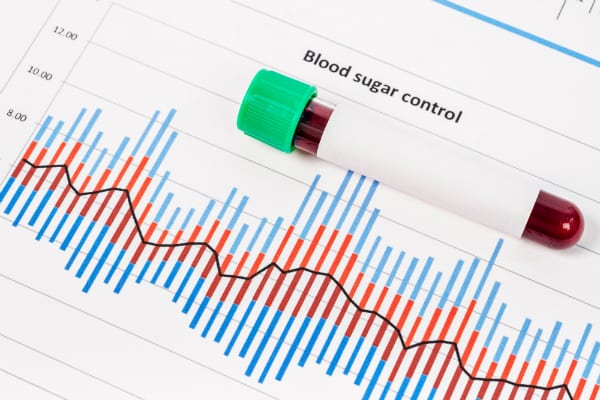Introduction
Your eye health is one of the most critical aspects of your overall health, and few people realize that the two are intimately intertwined. Just as the quality of your vision can impact your general health and happiness, the quality of your overall health can adversely affect your vision.
People with certain medical conditions are acutely aware of this. Diabetic people, for instance, know all too well that if left unmanaged, their condition can result in the permanent loss of their vision. Today we’re going to explore some of the ways in which high blood sugar can harm your eye health and discuss the preventive measures you can take to ensure a long, happy, healthy life for yourself and your eyes.
What is High Blood Sugar?
High blood sugar (hereafter called hyperglycemia) is an ailment that afflicts people whose diabetes is not well controlled. It can affect both Type 1 and Type 2 diabetics, and there are two main kinds: fasting hyperglycemia and post-prandial hyperglycemia.
Fasting hyperglycemia:
This refers to blood sugar higher than 130 mg/dL (milligrams per decileter) after not consuming food or drink for eight hours or more.
Post-prandial (after eating) hyperglycemia:
This refers to blood sugar higher than 180 mg/dL two hours after eating a meal. People without diabetes rarely have blood sugar higher than 140 mg/dL two hours after eating, which should give you a sense of what a high number this is.
Over time, if left untreated, hyperglycemia can cause serious damage to the blood vessels, nerves, and life-sustaining organs. It can also lead to potentially deadly complications such as ketoacidosis. If you suspect you have hyperglycemia, it’s extremely important to see a doctor right away and be evaluated
What Causes Blood Sugar to Rise?
There are a number of causes including:
– Missing a dose of insulin (for diabetic people)
– Increased stress
– Illness
– Infection
– Consuming too many carbohydrates
What Are the Signs and Symptoms?
Hyperglycemia may cause one or more of the following symptoms:
– Weight loss
– Fatigue
– Frequent urination
– Blurred vision
– Increased thirst
– Headaches
– Difficulty concentrating
And if left untreated over time, it can lead to:
– Nerve damage
– Damage to the eyes, kidneys, and blood vessels
– Hair loss
– Erectile dysfunction
– Slow-healing surface injuries
– Chronic digestive problems
The good news is that if caught and treated, hyperglycemia can be controlled through a combination of lifestyle changes and medication.
Why Does Hyperglycemia Affect Vision?
Hyperglycemia causes the lenses of your eyes to swell, which in turn leads to temporarily blurred vision. In more serious cases, untreated hyperglycemia can lead to a complication known as retinopathy. This is when high blood glucose damages the blood vessels in your retinas. The good news is that, although serious, this condition can be prevented and treated.
If you are diabetic, you should know that the American Diabetes Association (ADA) recommends that you receive regular dilated eye exams. This involves administering special eye drops that open your pupils, so your ophthalmologist can inspect the insides of your eyes. Here are the ADA’s guidelines for when a diabetic person should receive a dilated eye exam:
– If you experience sudden blurriness or any other changes in your vision
– If you are pregnant or trying to conceive
– If you are thirty or older, regardless of how long you’ve been diabetic
– If you are between ten and twenty-nine and have had Type 1 diabetes for at least five years
By undergoing regular dilated eye exams, you can help stay ahead of any damage that may occur to your vision due to complications from diabetes.
How Can I Protect My Vision if I Have Diabetes?
Here at Florida Eye Specialists and Cataract Institute, we advocate prevention above all else. If you make a point of taking care of your body before vision problems have a change to develop, not only are you increasing the longevity of your sight, you’re also reducing your risk of experiencing further complications.
For diabetic patients, we reinforce your primary caregivers’ recommendations about diet, exercise, and medication. That means cutting back on simple carbs and sugary foods and beverages, eating a diet rich in dark leafy greens, exercising regularly, and being diligent about testing your blood sugar and taking any medication you may have been prescribed to reduce your blood glucose level.
The health of your eyes is only as good as the health of your body as a whole. Make sure you’re caring for the complete package!
Disclaimer: This article was for informational purposes only and should not be considered a substitute for medical care. For more information or to schedule an appointment, contact us at Florida Eye Specialists and Cataract Institute.



